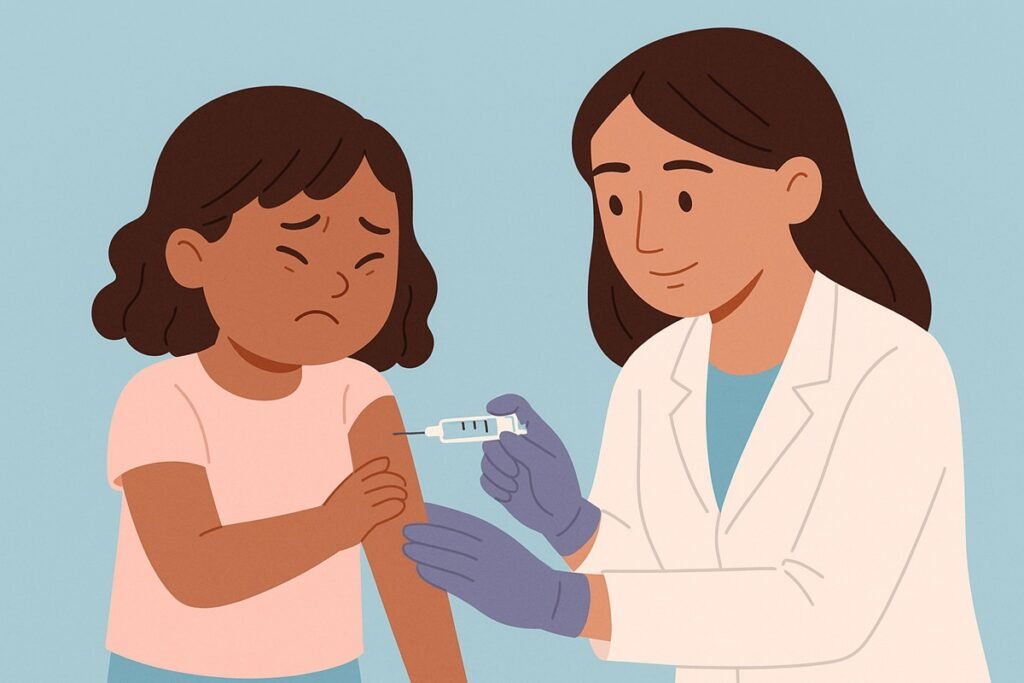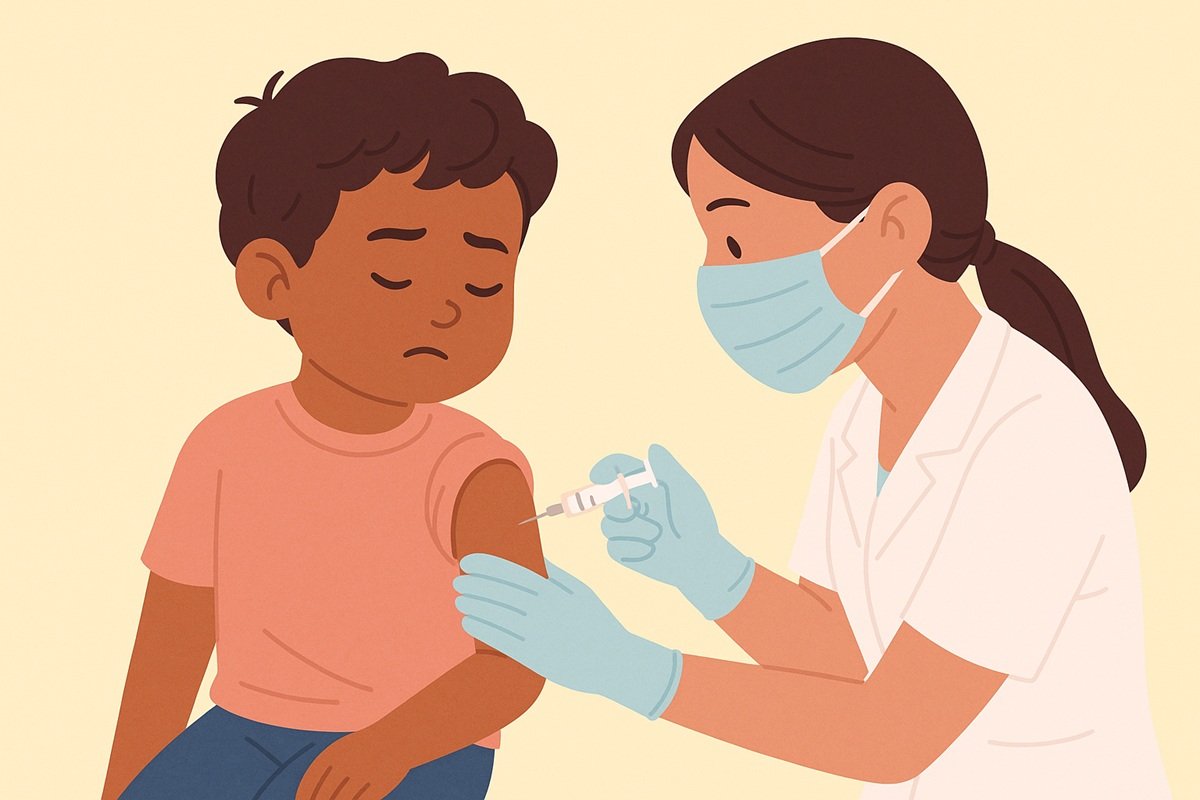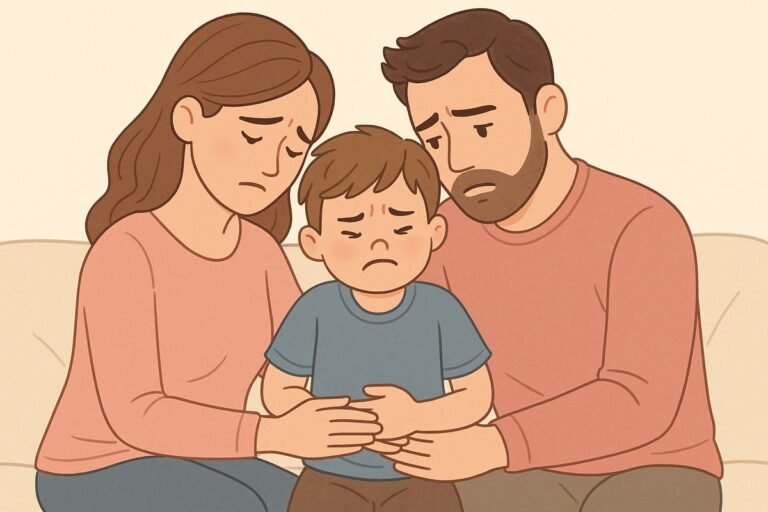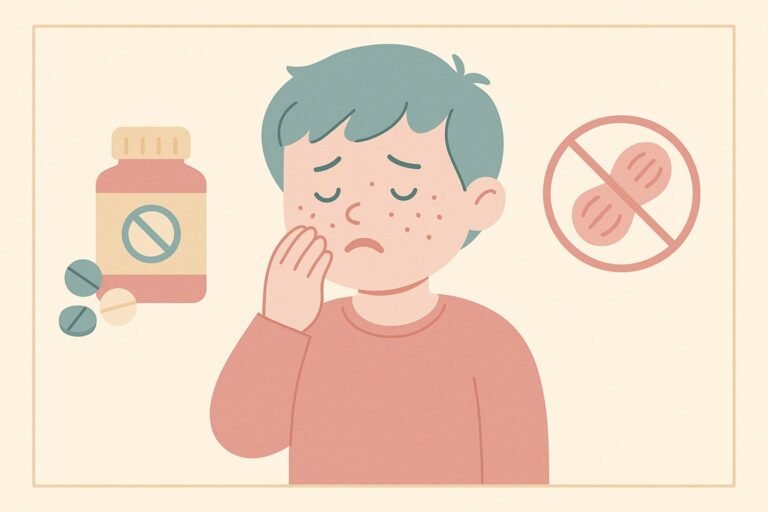Disclaimer: This article represents the professional opinion of a licensed physician with experience in pediatric care. It is not intended to replace personal medical consultation. All medications, interventions, or healthcare decisions should be supervised by a qualified medical professional. Always consult your pediatrician regarding your child’s individual health needs.
Vaccines are among the most powerful tools in modern medicine for preventing illness and promoting child health. Yet, despite their proven effectiveness, many parents still find themselves overwhelmed or unsure when it comes to understanding what vaccines are, how they work, and which ones their children need.
This guide to vaccines aims to bridge that gap by simplifying the science and recommendations behind childhood vaccinations, empowering parents with the knowledge they need to protect their families.
Table of Contents
What Are Vaccines and How Do They Work?
Vaccines are substances designed to prepare the body’s immune system to fight off specific infections. They contain either killed or weakened forms of disease-causing organisms, or just parts of them (like proteins or sugars), which are enough to trigger the immune system’s defense without causing the disease itself.
When a child is vaccinated, their immune system responds by creating antibodies – proteins that recognize and attack that specific microbe if it appears again. Think of it as giving the immune system a training session: It learns to recognize the threat and prepares defenses in advance, so if the real infection happens later, the body reacts quickly and efficiently.
Vaccines not only protect the individual child but also reduce the spread of diseases in the community. This widespread protection, known as herd immunity, helps safeguard those who can’t be vaccinated, such as infants or people with certain medical conditions.
Mandatory Vaccines: What Every Child Needs
Mandatory or routine vaccines are those included in the national or international immunization schedules. These are the vaccines that pediatricians recommend all children receive unless there’s a specific reason not to.
The routine vaccines in the childhood vaccine schedule of most countries include:
1. Hepatitis B Vaccine (HepB)
The hep B vaccine protects against a liver infection caused by the hepatitis B virus. Usually it is given shortly after birth and completed in three doses.
2. Diphtheria, Tetanus, and Pertussis Vaccine (DTaP)
The DTaP vaccine is a combined vaccine guarding against:
- Diphtheria: A serious throat infection
- Tetanus: Muscle stiffness from bacteria in soil
- Pertussis (Whooping cough): A dangerous respiratory illness, especially in infants
3. Haemophilus Influenzae Type B Vaccine (Hib)
The Hib vaccine protects against a bacterium that can cause severe infections like meningitis and pneumonia.
4. Polio Vaccine (IPV)
The IPV vaccine eradicates the risk of polio, a virus that can cause paralysis.
5. Pneumococcal Conjugate Vaccine (PCV)
The PCV vaccine guards against a wide range of infections like ear infections, pneumonia, and meningitis caused by Streptococcus pneumoniae.
6. Rotavirus Vaccine
This is an oral vaccine protecting against severe diarrhea in infants and toddlers.
7. Measles, Mumps, and Rubella Vaccine (MMR)
The MMR vaccine is a combined vaccine preventing three viral illnesses:
- Measles: A highly contagious virus causing rash and fever
- Mumps: Swelling of glands near the jaw
- Rubella: A mild rash illness that’s especially dangerous during pregnancy
8. Varicella Vaccine (Chickenpox)
The chickenpox vaccine prevents chickenpox and its complications like skin infections and pneumonia.
9. Hepatitis A Vaccine (HepA)
The HepA vaccine protects against a liver infection transmitted through contaminated food or water.
10. Influenza (Flu) Vaccine
The flu vaccine is recommended yearly for children aged 6 months and older to prevent seasonal influenza.
Elective Vaccines: Optional but Beneficial

Some vaccinations aren’t mandatory for every child but might be advisable depending on health conditions, travel plans, or local disease prevalence.
The typical elective vaccines include:
1. Human Papillomavirus Vaccine (HPV)
The HPV vaccine is recommended for pre-teens (usually around age 11-12) to protect against certain cancers caused by HPV, such as cervical and throat cancers.
2. Meningococcal Vaccines (MenACWY and MenB)
The MenACWY and MenB vaccines protect against meningitis and bloodstream infections caused by Neisseria meningitidis. They are usually given in adolescence, especially for college-bound students or those living in dormitories.
3. Dengue Vaccine (In specific endemic areas)
In countries where dengue fever is common, vaccination may be recommended for children who have already had one dengue infection.
Elective vaccines might not be part of your country’s standard vaccination schedule, but they can be crucial in certain circumstances. Always discuss these with your pediatrician if you are planning international travel or if your child has a specific health condition.
Reactions to Vaccines: What to Expect and How to Manage Them
Vaccines are generally safe, and most side effects are mild and temporary. Understanding what’s normal and what needs attention can help reduce anxiety.
Common Side Effects
The typical side effects of vaccines in children include:
- Pain, swelling, or redness at the injection site
- Mild fever
- Fussiness or irritability
- Fatigue or sleepiness
- Mild rash (with MMR or varicella vaccines)
These side effects usually go away on their own within 24-48 hours. Giving your child plenty of fluids and rest can help ease discomfort. A doctor-approved dose of acetaminophen or ibuprofen may be used if needed (never aspirin in children).
Rare but Serious Reactions
Meanwhile, sometimes – albeit rarely – children can experience more serious side effects including:
- High fever (above 104°F or 40°C)
- Non-stop crying for more than 3 hours
- Seizures (usually related to high fever, not the vaccine itself)
- Severe allergic reaction (anaphylaxis): Difficulty breathing, swelling of the face or lips, or hives
Seek immediate medical attention if any of these serious symptoms occur.
When Should Vaccines Be Avoided or Delayed?
There are specific medical scenarios when a child should not receive certain vaccines, or the timing should be adjusted.
These cases include:
1. Immunocompromised Children
Children undergoing chemotherapy, those with untreated HIV/AIDS, or those with congenital immune deficiencies may not tolerate live vaccines (like MMR or varicella). Inactivated vaccines may still be allowed, but always under strict medical supervision.
2. Severe Allergies
If your child has had a life-threatening allergic reaction (anaphylaxis) to a previous dose of a vaccine or one of its components (like gelatin or yeast), the vaccine should not be repeated.
3. Moderate or Severe Illness
When a child has a high fever or a severe illness, vaccination might be postponed until recovery. Minor illnesses like colds or mild diarrhea are not usually reasons to delay vaccines.
4. Guillain-Barré Syndrome (GBS)
If a child has a history of GBS, some vaccines may be given with caution or avoided, depending on the context.
Always consult with your pediatrician before making decisions about skipping or delaying vaccines.
Vaccines and Autism: Addressing the Debate
One of the most persistent myths surrounding childhood vaccinations is the alleged link between vaccines and autism. This concern originated from a now-debunked study in the 1990s that falsely claimed a connection between the MMR vaccine and autism. That study was later retracted, and the lead author lost his medical license due to ethical violations.
Since then, numerous reputable, authoritative studies across the globe have found no connection between vaccines and autism. Autism is a complex neurodevelopmental condition believed to be influenced by genetic and early developmental factors – not by vaccines.
Despite the evidence, fear still lingers in some communities. It’s important to understand that choosing not to vaccinate your children can expose them and others to preventable and potentially life-threatening illnesses. The safety and effectiveness of vaccines are continually monitored by global health authorities, including the CDC, the WHO, and the FDA.
Final Thoughts: Empowering Parents Through Knowledge
Vaccinations are one of the simplest, yet most powerful ways you can protect your child’s health. By following the recommended schedule and staying informed about each vaccine, you not only ensure your child’s safety but also contribute to the overall well-being of your community.
If you’re ever in doubt about a vaccine, have questions about ingredients, timing, or side effects, talk to your pediatrician. A strong partnership between parents and healthcare providers is the best defense against misinformation and unnecessary illness.







